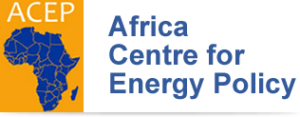Special topics
 The Africa Centre for Energy Policy (ACEP) will embark on a project under which all recommendations for addressing the governance challenges facing Africa’s oil sector will be constituted into a document for adoption by political parties in all African countries.
The Africa Centre for Energy Policy (ACEP) will embark on a project under which all recommendations for addressing the governance challenges facing Africa’s oil sector will be constituted into a document for adoption by political parties in all African countries.
The project, scheduled to begin with Ghana, next year, is dubbed the Africa Oil Manifesto Project.
The Executive Director of ACEP, Dr. Mohammed Amin Adam, who made this known at a news conference in Accra explained that under the project, ACEP would engage political parties to ensure that the recommendations were mainstreamed into their Manifestoes for implementation.
The project, Dr. Adam said, aimed to ensure that recommendations by stakeholders and Civil Society Organisation (CSOs) on oil governance were not ignored by governments, whose duty it was to implement them.
He said other measures to ensure that important recommendations on the efficient management and utilization of oil revenues would include regular stock-taking meetings and the publication of annual reports on the annual Africa Oil Governance Conferences, the maiden edition of which took place in Accra, last month.
He added that the 2017 report would assess the implementation rate and level of recommendations in all previous oil governance meetings.
Meanwhile, in a communiqué issued at the end of Africa Oil Governance Summit 2015 and communicated to the media, ACEP urged all African governments to optimize the benefits from oil and gas exploration through a combination of fiscal and non-fiscal reforms, specifically by stopping all unnecessary tax concessions, applying optimal fiscal terms that match specific conditions pertaining to different oil blocks and maximizing local content initiatives.
The Communiqué also called on African governments to develop comprehensive resource revenue and productive investment choices, based on long-term national development and public investment plans developed through broad consultation.
The Communiqué stressed the need for African governments to build a transparency regime for licensing oil concessions and urged African governments whose countries had not yet signed onto the Extractive Industries Transparency Initiative (EITI) to do so as a way of enhancing transparency and accountability mechanisms in their countries.
The Communiqué underscored the importance of developing a regional protocol linked to the African Mining Vision for addressing common tax issues, cross-border resource management, conflict and regional infrastructure issues and called on African governments to lead and demand an international response to combating illicit financial outflows perpetrated through transfer pricing, tax avoidance and thin capitalization, among others as well as co-operate with international bodies to design and implement appropriate guidelines for addressing such illicit financial flows.
The Communiqué emphasised the importance of institutional capacity development in oil governance and co-operation among institutions, particularly between resource and tax administration, and called on African governments to commit to building independent and well-resourced institutions for efficient tax administration, contract negotiation and execution, mitigation of adverse environmental impacts and effective parliamentary oversight.
According to the Communiqué, to ensure the protection of community rights and interests, African governments should adopt or introduce policies such as the Free Prior and Informed Consent (FPIC), simplify reports for public hearing to facilitate effective community participation and provide appropriate channels for communities to seek redress.
The Communiqué urged oil companies to, in consultation with the communities, negotiate and implement Community-Based Agreements (CBAs) to support their rights and ensure environmental sustainability.
It also called on CSOs to increase dialogue between government and civil society, and non-state actors to build consensus on the key issues affecting oil and gas development, take proactive steps to increase their technical capacities on the sector as well as advocacy skills to engage more effectively with other stakeholders.
On moving forward the conclusions of the Africa Oil Governance Summit 2015, the Communiqué urged each participating country to take urgent steps to domesticate the recommendations by developing clear and jointly-owned advocacy action plans to sustain the momentum generated by the summit and ensure that the summit recommendations were pursued vigorously and systematically.
Mr. Benjamin Boakye, Deputy Executive Director, ACEP, who communicated the contents of the communiqué, reiterated ACEP’s commitment to addressing the governance challenges facing Africa’s oil sector for accelerated national development by monitoring the progress made on the implementation of the recommendations through its annual Africa Oil Governance Reports.
Source: http://thebftonline.com/commodities/oil-gas/16442/acep-pushes-africa-oil-manifesto-project.html#sthash.yKJbgcoz.dpuf